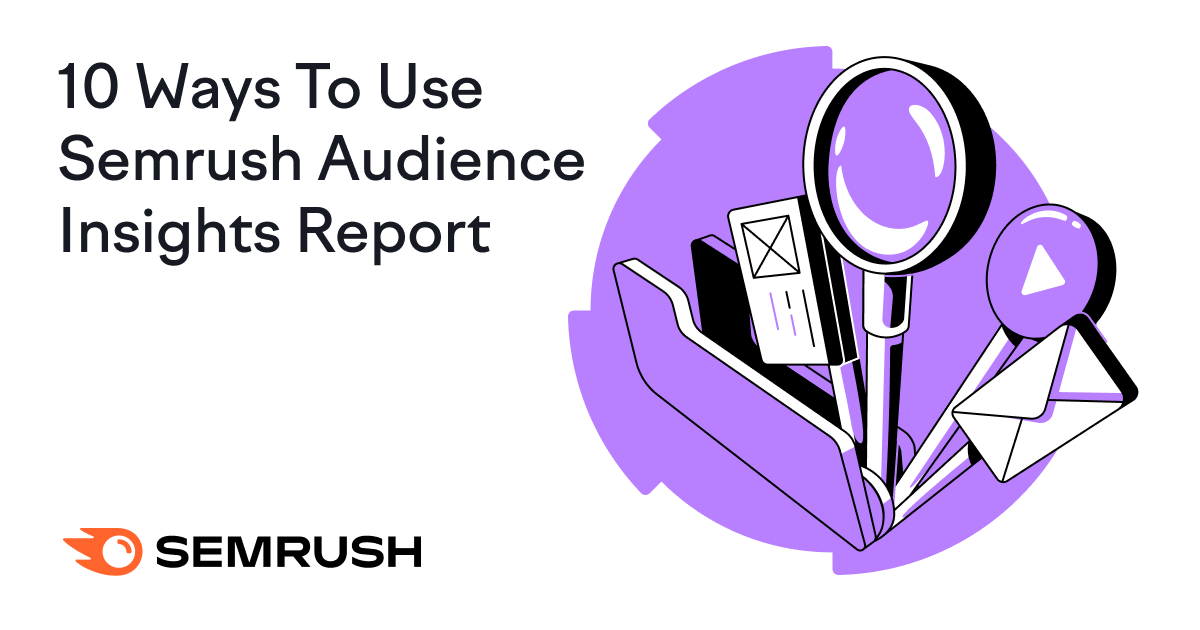.png)
Wondering if there’s room for another big player in the search world?
In July 2024, OpenAI launched their SearchGPT search engine to a limited group of test users.
Since then, it’s been integrated into ChatGPT for Plus and Team subscribers, and there are plans to make it available to free users in early 2025.
As we wait for the platform to become fully public, you may be wondering: How does this new search engine stand up against the long-established giants Google and Bing?
How SearchGPT Stacks Up Against Bing and Google
To find out, we put all three search engines to the test by running 5,000 queries through each. Our goal was simple—get a feel for how they choose and rank information and see if SearchGPT really brings something fresh to the table.
Our analysis revealed differences in the websites each engine chooses to highlight—differences that could reshape how users discover content online.
Specifically, we saw SearchGPT standing out by highlighting smaller domains and unique content, potentially offering new opportunities for search marketing compared to Google and Bing.
Methodology
Keyword / Query Selection
We selected 5,000 random keywords from the Semrush database with a couple of rules. First, we only gathered keywords with at least three words within the query.
Then, we made sure there was an equal distribution of keywords with search volume between 10-1,000 and 1,001-10,000 monthly searches.
Then, within those two groups of volume, we collected an equal distribution from Semrush’s four groups of search intent (informational, navigational, commercial, and transactional).
Data Collection
The 5,000 keywords were queried on each search engine from a US-based location in November 2024. Then, we recorded the top 10 organic URLs provided by each search engine (not taking into account any ads or SERP features).
Analysis
We examined three aspects – the amount of overlap between search engines, domain size preferences, and any other patterns across website categories. To measure the size of domains we saw in the study, we used monthly traffic estimates from Semrush Traffic Analytics.
Key Takeaways
SearchGPT Overlapped More with Bing than Google
SearchGPT’s results had more overlap with Bing than with Google, showing the potential impact of their use of Bing’s index.
Google Showed a Preference for Larger Domains
On average, Google tended to showcase larger domains, while SearchGPT showed smaller domains. This was true across all of the top 10 search results as well as looking just at the top result. Bing’s average domain size ranked in the middle of the two.
Domain Preferences Differed Among Search Engines
Each search engine showed some unique preferences for certain types of domains:
- SearchGPT: Major retailers and lifestyle magazines had more visibility here than on Google or Bing.
- Google: Reddit, Quora, and other major social media platforms had much more visibility on Google than on Bing or SearchGPT.
- Bing: Yelp and Yellowpages appeared more on Bing than Google or SearchGPT.
Search Engine Overlap: How Much Do Search Engines Agree?
When you enter the same keywords across different search engines, do they show you the same websites?
The short answer is no. If you enter a query on Google and aren’t happy with what you see, you’re likely to find other results on Bing or SearchGPT.
Measuring SERP Overlap
To quantify how much overlap exists between the search engines, we calculated the average number of matching domains that appeared in the top 10 results for the same query.
On average, this is how much we saw:
- SearchGPT & Bing: 3.5 domains
- Bing & Google: 2.8 domains
- SearchGPT & Google: 2.5 domains

What does this tell us?
These preliminary results suggest that SearchGPT and Bing share the highest degree of similarity in what they present to users, likely reflecting their shared indexing foundations.
Meanwhile, Bing and Google show a moderate overlap, indicating some common ground, but not as much.
The smallest overlap exists between SearchGPT and Google, suggesting that these two tap into different priorities or ranking factors.
Although the overall differences are subtle, they do hint that each search engine leverages its own unique approach to prioritizing and ranking content. And across the board, there’s only an average of 25-35% similarity in the top organic results.
To put this in perspective, when our study queried “white water rafting tennessee,” we saw:
- SearchGPT and Google shared 3 of the same domains in their top 10 results
- SearchGPT and Bing shared 7 of the same domains
- Google and Bing shared 4 of the same domains
- 7 of Google’s top 10 domains did not appear in the top 10 results on the other two engines
This example reinforces the notion that SearchGPT currently aligns more closely with Bing’s indexing choices than Google’s, at least for now.
But common ground isn’t the whole story. Next, let’s look at the sizes of domains listed by each search engine.
Domain Size Distribution: Where Do Bigger Sites Get Better Rankings?
How much does domain size matter to these search engines?
Looking at median values of domain size (monthly traffic), we saw that Google had the biggest preference for larger domains. Meanwhile, SearchGPT showcased smaller domains the most out of the three.

Bing tends to land somewhere in between.
Median Size of Domain by Search Intent
When breaking down the keywords by search intent, we saw the same trend of Google preferring larger domains in every category except transactional.

This aligns with another finding in the data – SearchGPT tends to give more visibility to smaller domains. The exception was with transactional queries, where SearchGPT actually preferred larger sites than Google.
What does this mean?
- SearchGPT: By favoring smaller domains, SearchGPT elevates sites that might not typically reach prime visibility on other platforms.
- Google: Google’s results often feature high-traffic domains, especially for informational queries. However, for transactional queries, Google’s median site size was smaller than the other two engines.
- Bing: Falling in between the two extremes, Bing still leans toward larger sites but not nearly as strongly as Google, especially for informational queries.
As SearchGPT continues to evolve, it will be interesting to see if its tendency to place smaller domains at the top could challenge traditional SEO practices that often favor larger, more established sites.
Unique Preferences of Each Search Engine
After examining the overall patterns in ranking and domain sizes, we turned our attention to specific domains.
Were there particular sites that one search engine elevated far more than the others?
Some domains showed massive differences in visibility across platforms, while others maintained a steady presence everywhere.
Through our analysis of 5,000 SERPs for each engine, a few clear patterns emerged in the types of sites each platform elevated to top positions.
SearchGPT: More Visibility for Major Retail and Lifestyle Brands
SearchGPT’s results revealed a preference for established retail brands, authoritative health resources, and mainstream lifestyle content.

Note: These numbers represent how many total times a domain was seen in the top 10 results of each search engine. If, for example, lowes.com ranked twice on the same Google SERP, it counted twice in this number.
Major Retailers Receive Significant Visibility
We noticed a few large brick-and-mortar retail chains received significantly more visibility on SearchGPT compared to other search engines.
For example, Lowes.com appeared 246 times in SearchGPT’s results, more than double Google’s 105 appearances.
Similar patterns emerged for Best Buy and Macy’s.
Some health and wellness sites featured more prominently
SearchGPT showed a strong preference for established health information websites:
- Healthline.com appeared 153 times (compared to Google’s 71 and Bing’s 131)
- Verywellhealth.com showed up 127 times (versus 33 on Google and 84 on Bing)
A few lifestyle magazines got notably more exposure than on other platforms
Perhaps most distinctively, SearchGPT gave significantly more visibility than Google to a few mainstream lifestyle publications:
- Better Homes & Gardens: 66 appearances (7x more than Google)
- Southern Living: 43 appearances (6x more than Google)
- Real Simple: 53 appearances (9x more than Google)

SearchGPT Key Insights
While this was only a sample size of 5,000 searches, SearchGPT showed some unique preferences compared to Google and Bing.
Specifically, major companies with strong brand recognition in retail, lifestyle, and medical fields saw the most visibility on this search engine.
Google: Social and User-Generated Content Focus
Google’s search results revealed a preference for user-generated content and social platforms, with Reddit, Quora, and social media emerging as prominent examples.
Reddit’s Presence on Google
Reddit’s visibility on Google far exceeded any other domain across all search engines in our study:

- 4,497 total appearances across 2,449 unique SERPs
- Dramatically higher presence compared to SearchGPT (202 appearances) and Bing (442 appearances)
Since our sample included 5,000 Google SERPs, this means that Reddit appeared at least once (and often twice or more) on nearly half of all Google SERPs in our study.
By contrast, SearchGPT only showed Reddit a total of 202 times (on 26 SERPs). And Bing only showed Reddit 442 times (on 235 SERPs).
Social Platform Dominance
Reddit’s impressive run on Google is part of a larger trend—other social-focused domains like Facebook also appear far more often on Google than on SearchGPT or Bing.

When we looked at the total appearances of seven of the largest social media domains across all queries, the numbers were striking:
- SearchGPT: 672 total appearances
- Google: 6,958 total appearances
- Bing: 1,427 total appearances

In other words, Google showcased social media domains roughly 10 times as often as SearchGPT and almost five times as often as Bing.
The pattern is consistent across all major social platforms we examined.
Notice the abundance of user-generated or social platforms—Reddit, Facebook, Instagram, Quora—that thrived on Google’s SERPs but appeared far less often elsewhere.

Google Key Insights
Google’s results indicated a notable preference for platforms where user-generated content and community engagement thrived. This is indicated by the following:
- Reddit’s presence on Google is significant, appearing in the top 10 results 89% of the time – by far the most of any site on any search engine from the sample.
- Social media and community platforms receive more visibility on Google compared to SearchGPT and Bing.
- Quora was seen 457 times on Google but 0 times on the other search engines, suggesting Google values community Q&A content.
Bing: Directories and Local Listings
While Bing’s overall search volume is lower than Google’s, our analysis revealed patterns in how it shows content.
Most notably, Bing showed a preference for directory and local listing sites in comparison to the other two search engines.
Directory Site Preference
While Google is spotlighting Reddit, Bing heavily featured Yelp, the popular directory for local businesses (and competitor to Google’s own Google Business Profile).

This preference extends to other directory and reference sites, sites that provide structured information and business data:

Bing Key Insights
Compared to Google’s community-driven results and SearchGPT’s emphasis on retail and lifestyle brands, Bing showed an inclination toward directories and reference-based websites.
- Yelp was the biggest winner on Bing, and it had almost 10 times as much visibility here than on SearchGPT.
- The prominence of Yellowpages, another directory site, contrasts with Google’s social focus and SearchGPT’s retail orientation.
- Reference sites like Wikihow saw higher visibility on Bing compared to Google and SearchGPT.
Consistent Across All Three Search Engines
While each search engine shows distinct preferences, certain domains maintained relatively stable visibility across all three platforms.

Key Insights
- Reputable informational sites like Fandom and ESPN appear consistently across all three engines.
- Well-respected health authorities (Mayo Clinic, Cleveland Clinic) also achieved consistent representation, suggesting that quality and trustworthiness can transcend each engine’s unique preferences.
- Two major hotel brands (Marriott and Hilton) were relatively consistent as well.
What This Means for Marketers
While this study provides only a preliminary look into how the new search engine stacks up against the status quo, it still offers clues that marketers can use when planning for 2025 and beyond.
- Opportunities for New Retailers on SearchGPT: If you’re a new retailer, it’s worth keeping an eye on SearchGPT. This engine seems more open to showcasing a variety of retail websites compared to Google, which could be a golden opportunity for new or smaller brands trying to make their mark.
- Leveraging Social Media for Visibility on Google: Compared to the other two search engines, Google gave tons of visibility to Reddit, Facebook, Quora, and other major social platforms. Branding and growing your visibility on those sites could help your visibility on Google, too.
- Insights from Bing’s Influence on SearchGPT: Since SearchGPT uses Bing’s index, understanding your rankings on Bing could give you a good clue about how you’ll do on SearchGPT. This underscores the importance of optimizing your site for Bing and monitoring your rankings there.
- The Need for Broader Tracking: There are notable differences between these search engines, so just focusing on Google might mean you’re missing out. Keeping tabs on how your content performs on platforms like SearchGPT and Bing can reveal opportunities that Google alone won’t show.
- It’s Not the Same Search Experience: Ultimately, people are likely to interact with SearchGPT differently compared to Google or Bing, making a direct comparison less applicable.
It’s worth noting that this study looked at keywords that were already being searched on Google, but SearchGPT may see people search differently. They might try longer, more detailed queries than they would on Google or Bing.
Could these differences foreshadow a contrast in search marketing for Google vs. SearchGPT? Only time will tell.
Keep an eye out for more studies from us in the future, as we’ll be keeping our eyes on any new developments from SearchGPT here at Semrush.





![What It Is & How to Do It [Examples + Template] What It Is & How to Do It [Examples + Template]](https://static.semrush.com/blog/uploads/media/86/6a/866a1270ca091a730ed538d5930e78c2/do-swot-analysis-sm.png)